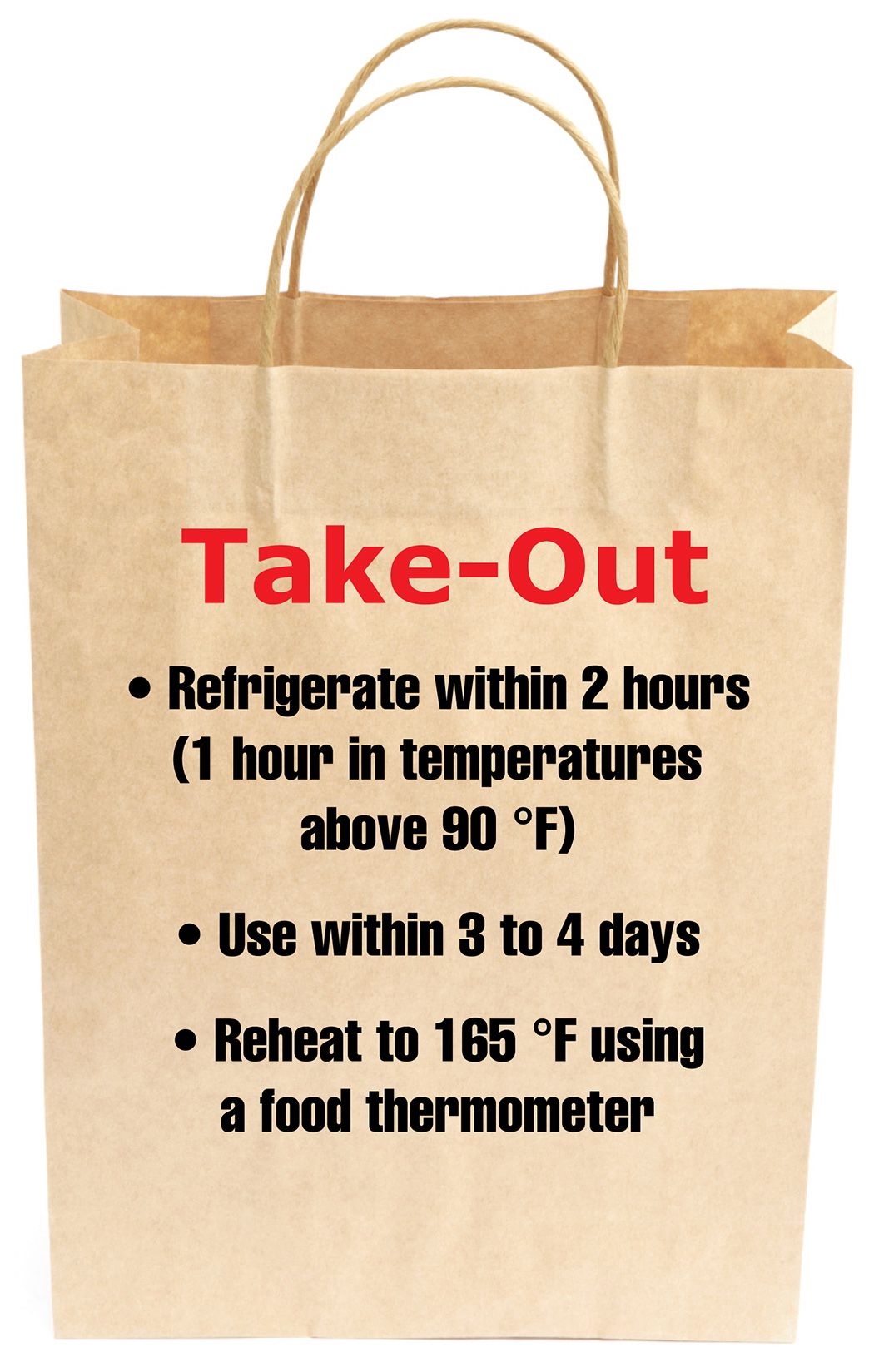Taking Your Food to Go? Properly Handle Your Leftovers
TEXARKANA, Ark. –
Americans like to eat out a lot. We have come to rely on others to prepare our food. It is easier than ever not to cook, and Americans are taking advantage of that. The Bureau of Labor Statistics reports that the average household spends an average of $3,008 per year on dining out.
If you are taking your food to go then you need to properly handle your leftovers.
Foods from the drive through are usually consumed as soon as you get home, while take out foods could consist of foods that you purchase in advance and plan to eat later. This might include things such as party platters or an entire cooked meal.
Can’t eat right away? Keep the foods at the correct temperatures, not only for quality but for food safety as well. Once the food is cooked, it should be held hot, at an internal temperature of 140 degrees F or above. Just keeping food warm is not safe.
If you plan to eat later, it will be necessary to divide the meal into smaller portions or pieces, place in shallow containers, and refrigerate, but for no longer than 3-4 days.
For those foods that you purchase which are intended to be served cold, they should be kept at 40 degrees F. or below. Refrigerate your perishable foods as soon as possible, always within 2 hours of purchase or delivery.
If food has been delivered or picked up and will be put on a buffet table, be sure to keep it cold as well by nesting several serving dishes of food in bowls of ice. Use small platters and replace them with fresh refrigerated platters of food often, rather than adding fresh food to a serving dish already on the table.
Since it is football season, you may be purchasing foods for a tailgating party. Remember to keep a cooler packed with plenty of ice or frozen gel packs. If necessary, keep the cooler in the shade.
Above all, remember the 2 hour rule when food is removed from the cooler. Discard all perishable foods that have been left at outside temperatures longer than 2 hours; 1 hour if the temperature is above 90 degrees F.
Once finished, discard all perishable foods, such as eggs, meat, poultry, and casseroles that have been left at room temperature for more than 2 hours. Some exceptions to this rule are foods such as cookies, crackers, breads, and whole fruits.
Leftovers should be refrigerated or frozen in shallow containers wrapped or with closed lids. The food should always be covered. No food should stay in the refrigerator for longer than 4 days. This includes luncheon meats and protein based salads, such as tuna, macaroni, or egg salad.
I know that some of you may be thinking that this is wasteful and as long as the food stays in the refrigerator, it is still good to eat. The truth is, food stored longer than 4 days may begin to spoil or become unsafe to eat.
If you have properly stored the foods after eating, then it may be possible to reheat them. Foods containing meat or poultry should be reheated to an internal temperature of 165 degrees F. Reheat sauces, soups and gravies to a boil.
If you plan on reheating the foods in the oven, do not set the temperature any lower than 325 degrees F. Reheating in chafing dishes and slow cookers are not recommended due to the length of time foods may remain in the temperature “danger zone.”
For more information, contact the Miller County Extension Office, 870-779-3609 or visit us in room 215 at the Miller County Courthouse. We're online at cdue@uada.edu, on Facebook at UAEXMillerCountyFCS/CarlaDue, on Twitter @MillerCountyFCS or on the web at uaex.uada.edu/Miller.
By Carla Due
County Extension Agent - FCS
The Cooperative Extension Service
U of A System Division of Agriculture
Media Contact: Carla Due
County Extension Agent - FCS
U of A Division of Agriculture
Cooperative Extension Service
400 Laurel Street, Suite 215 Texarkana AR 71854
(870) 779-3609
cdue@uada.edu
Related Links
The Arkansas Cooperative Extension Service is an equal opportunity institution. If
you require a reasonable accommodation to participate or need materials in another
format, please contact your County Extension office (or other appropriate office)
as soon as possible. Dial 711 for Arkansas Relay.
Pursuant to 7 CFR § 15.3, the University of Arkansas System Division of Agriculture
offers all its Extension and Research programs and services (including employment)
without regard to race, color, sex, national origin, religion, age, disability, marital
or veteran status, genetic information, sexual preference, pregnancy or any other
legally protected status, and is an equal opportunity institution.
